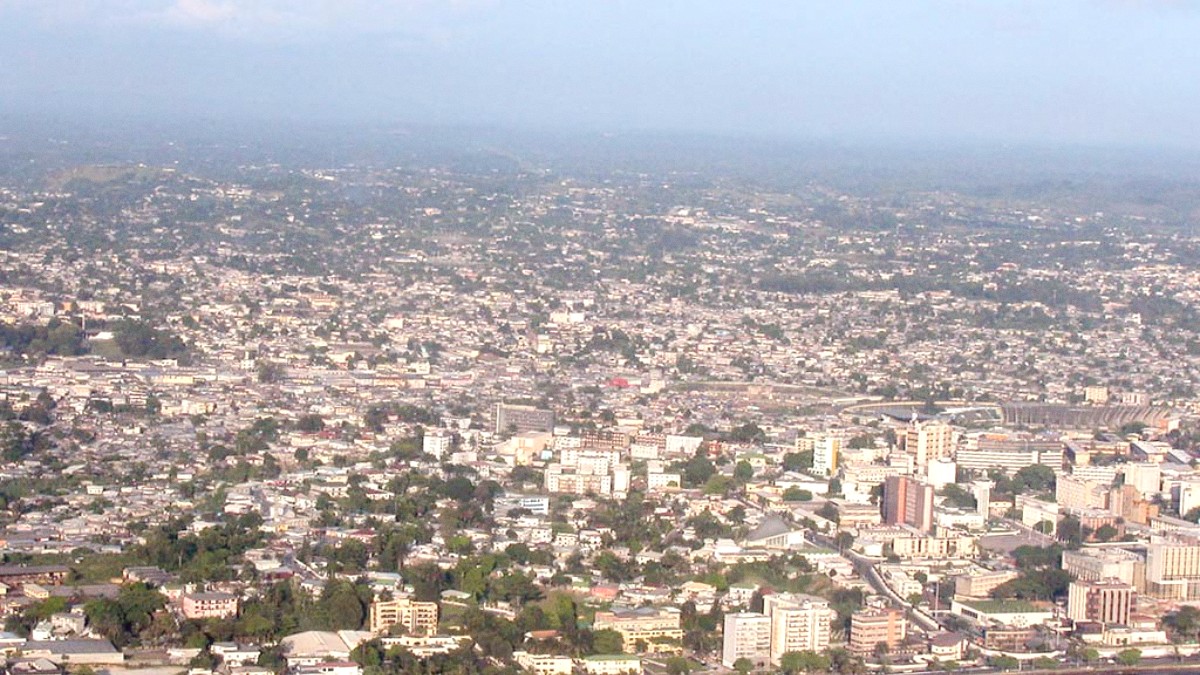
Gabon
National Museum of Arts and Traditions (Musée National des Arts et Traditions du Gabon): This museum is a main site for understanding Gabonese culture. It showcases a rich collection of traditional Gabonese arts, crafts, and cultural artifacts, including masks, sculptures, and musical instruments from various ethnic groups.
Presidential Palace (Palais Présidentiel): An imposing modern structure on the Corniche. It is the official residence and workplace of the President of Gabon. Not open to the public, but visible from afar. Photography from outside is strictly prohibited.
Tip: If you visit the French Cultural Center, ask about their events calendar. It is a good source for current happenings in the city's art and cultural scene. Check local French-language newspapers or online portals for information on special exhibits.
Discover more tours and activities on GetYourGuideBotanical garden near Libreville for nature walks, showing Gabon's biodiversity, plant species, and birdlife.
Peninsula across Komo River estuary, accessible by boat. Known for pristine beaches, coconut groves, and a relaxed natural environment. Views of Libreville skyline, especially at sunset.
Libreville serves as a base for tours to Loango (surfing hippos, forest elephants), Lopé (mandrill populations), and Akanda (mangrove forests, birdwatching). These require significant travel and planning.
Plage du Lycée is a city beach. Pointe Denis offers cleaner, serene beaches. Komo River Estuary provides opportunities for boat trips and fishing.
Libreville itself does not feature prominent geological attractions like mountains or volcanoes; its landscape centers on its coastal plain and estuary.
Beyond the main attractions, Libreville holds some less-visited spots and local favorites that offer a more authentic experience of the city.
Occasionally hosts contemporary African art exhibitions and cultural events. A place to see modern Gabonese and African artistic expressions. Inquire locally about current exhibits.
Beyond Mont Bouët, exploring these offers a more intimate and less tourist-oriented experience. Observe daily life and interact with local vendors in a calmer setting. Ask your hotel staff for nearby markets.
Scattered throughout residential areas, these open-air eateries are local favorites. They provide delicious, authentic, and affordable Gabonese food, offering genuine insight into local dining habits.
Just north of Libreville, this park protects mangrove forests and coastal ecosystems. Ideal for birdwatching, migratory birds, and marine life. Boat trips into the park are a rewarding and accessible experience.
St. Michael's Church's carved columns offer exceptional close-up photos. Sunsets over the Atlantic from the Corniche provide breathtaking views. Panoramic views of Libreville from Pointe Denis are also unique.
When seeking out local favorites, engage with Gabonese people. Asking for their personal recommendations often leads to the most authentic and memorable experiences.
Walk through older sections of Plateaux and Louis districts to see colonial-era architectural elements.
Take a boat trip to Pointe Denis for idyllic beaches and stunning sunset views over Libreville's skyline.
A peaceful retreat to explore the equatorial forest ecosystem and observe local plant and bird life.
Many attractions may not have extensive online information. Local inquiry and flexibility are beneficial for your visit.
When visiting churches, try to go during non-service hours to avoid disturbing worshippers, unless you specifically wish to observe a service.
For the best experience at Pointe Denis, book a boat trip that includes lunch at one of the beachfront restaurants. Some tours also include a short forest walk.
Enjoy the city's beaches or take a ferry to Pointe Denis for pristine shores.
Visit the National Museum for a deep dive into Gabonese art and traditions.
Explore Arboretum Raponda Walker for forest walks or plan a trip to nearby national parks.
Visit museums or churches in the morning for fewer crowds and better light for photography. Check opening times first.
Book morning toursHead to Pointe Denis or explore local markets in the afternoon. Enjoy leisurely walks along the Corniche.
Discover afternoon experiencesThe Corniche or Pointe Denis offers exceptional spots for watching the sunset over the Atlantic Ocean.
Use taxis for efficiency between scattered sites. Negotiate fares before starting your journey.
Dress modestly when visiting religious sites. Comfortable clothing and shoes are best for walking tours.
Access to attractions varies. Many are reachable by car or taxi. Some require walking or boat trips.
While large wildlife is rare in the city, the surrounding areas and national parks offer different viewing opportunities.
While Libreville has modern structures, glimpses of its colonial past exist in certain older districts. A keen eye will spot distinct architectural elements.
For a comprehensive cultural experience, consider combining visits to historical sites with the National Museum of Arts and Traditions, which ties together the country's heritage.
Your experiences in Libreville are shaped by your choices and local interactions. Be prepared for varied conditions and embrace the unique character of the city.
Gabon has a rich and diverse array of ethnic groups. The museum helps to preserve and display these cultural expressions. The blends Christian narratives with traditional Gabonese artistic expression.
Libreville's proximity to the rainforest and coast offers unique natural experiences. Protection of these environments is important.
Agree on fares before starting your trip to avoid misunderstandings.
This saves on transportation costs and time.
Libreville has a tropical climate with distinct wet and dry seasons. This impacts outdoor activity planning.
Pack accordingly for the season of your visit.
While generally safe for tourists, common sense precautions are recommended, especially in crowded areas or after dark.
A money belt or neck wallet comes highly recommended.
Begin with cultural sites like the National Museum or St. Michael's Church for a quiet start.
Consider a trip to Pointe Denis for beach relaxation or explore local markets.
Enjoy a sunset view from the Corniche, followed by dinner at a local 'maquis' or an international restaurant.